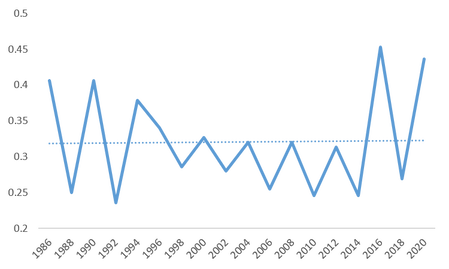Qualifying for Euro 2020 started last night and continues over the coming days. Scotland got off to the worst possible start losing by three goals to nil in Kazakhstan. The positive news for the Scots is that qualifying for the Euro's is not as difficult as it once was. The competition structure has changed quite dramatically since the early years of the competition, and next year 24 of the 55 UEFA members will appear at the finals. That's not far off one in two nations.
If one discounts the seven lowest ranked teams in UEFA (Gibraltar, Faroe Islands, Latvia, Liechenstein, Andorra, Malta and San Marino), every second country entering the competition will qualify.
Compare this to Ireland's first appearance at a Final's - Euro '88. While there were just 32 UEFA members, only 8 appreaded in Germany at the Finals. Just seven qualified as the hosts were guaranteed a place at the party. This means roughly 4 out of 5 countries watched on as Ireland famously toured Stuttgart, Hanover and Gelsenkirchen. This probably remains the countries biggest achievement when it comes to tournament qualification.

The trend line is almost flat (slightly rising). The interesting quirk in the data, if one looks closely at the years, is the flip in difficulty between competitions. In 1988 and 1992 the Euros were hard to get to, the World Cup much easier. Today the Euros have expanded meaning the chances of qualifying are much higher. World Cup qualification from Europe is much tougher and is likely to stay at way even after the competition expands.
So disappointed Scotland fans waking up this morning should take comfort. Yesterday's loss might not be as damaging as in the past. The Euro Finals are not what they once were.
 RSS Feed
RSS Feed